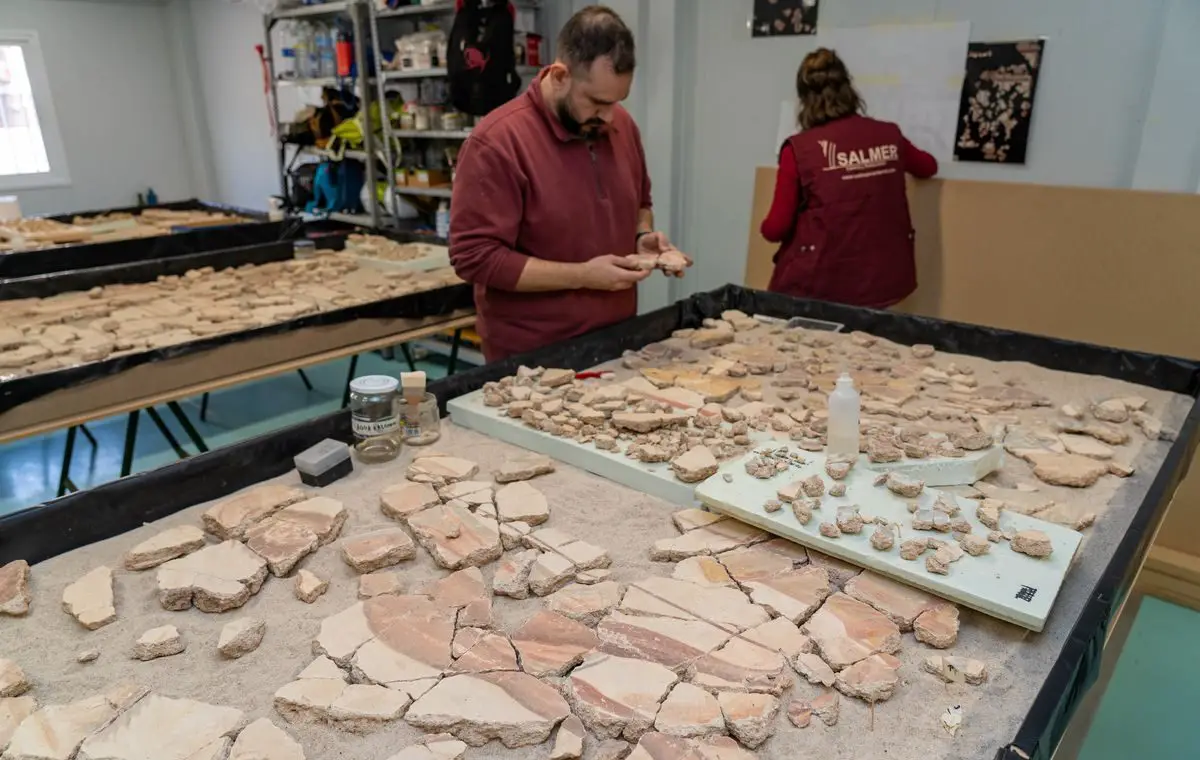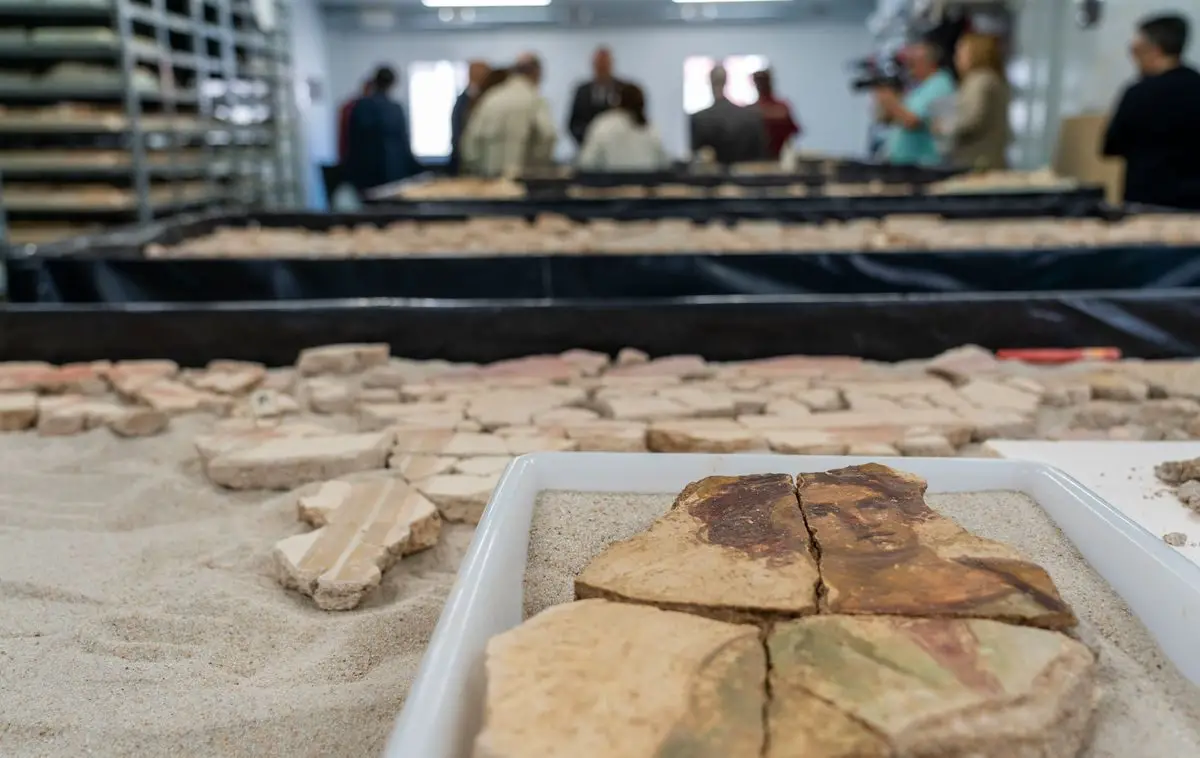Archaeologists have discovered fragments from a wall painting that decorated a portico in Cartagena’s Roman theatre.
Cartagena was founded as a Carthaginian city in 228 BC in south-eastern Iberia, Spain. The city was called Qart Hadasht, meaning “new city”, and served as a staging point for Carthaginian incursions into Spain.
The Roman general, Scipio Africanus, conquered the city in 209 BC, and renamed it as Carthago Nova, emerging as the capital of the Roman province of Carthaginensis.
Between 5 and 1 BC, the Romans constructed a large, monumental theatre, which had a cavea that could hold up to 7,000 spectators for public performances and ceremonies.

The theatre was discovered in 1988 during the construction of the Centro regional de artesanía, resulting in a long-term project of restoration and reconstruction, turning the theatre into an open-air museum.
Recent excavations by a team of archaeologists have discovered over 2,000 fragments from a large mural painting. The painting decorated the walls of a portico (porticus post scaenam) with a double porticoed gallery, revolving around a central room housing a garden at the back of the stage in the western section of the theatre complex.
The discovery adds to 1,500 fragments previously uncovered in 2006, allowing the researchers to continue the process of restoring the painting to its original design with more accuracy.
Although restoration is still in its early stages, depictions of ornate Roman figures are beginning to emerge, in addition to linear artistic features.
Excavations are planned to explore the central garden, where the researchers hope to find evidence of flower beds, piping that fed water to fountains, as well as understand how water was used to maintain the flora in the open space.
Header Image Credit : Felipe G. Pagan





